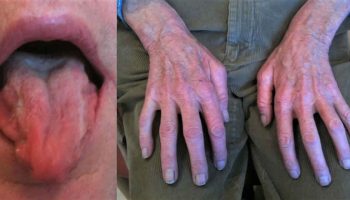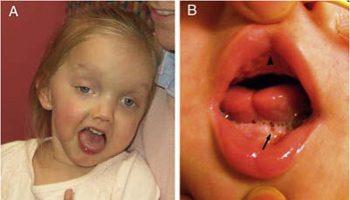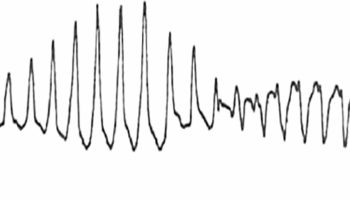What is Alpha-GPC
Alpha-GPC also known as alpha-glycerylphosphorylcholine, is a nootropic supplement that may increase brain levels of acetylcholine, a neurotransmitter that is important for memory and learning. Alpha-GPC has been employed to combat the onset of Alzheimer’s disease and dementia and stimulate cognitive recovery, improved learning, and neurological function 1. Neurons that produce acetylcholine are some of the first neurons lost in Alzheimer’s disease and theoretically, taking alpha-GPC may compensate for that loss. No studies have tested whether alpha-GPC improves cognition in healthy individuals. Although some studies suggest that alpha-GPC may improve cognition in dementia patients, many of these studies were conducted before widespread use of currently approved Alzheimer’s drugs that are designed to increase acetylcholine levels. It is still unclear whether alpha-GPC has additional benefits over approved Alzheimer’s medications. Alpha-GPC is a supplement with few mild side effects.
Alpha-GPC is compound comprises glycerol, choline, and phosphate moieties linked by ester bonds 2. Alpha-GPC is potentially one of the most valuable compounds that can be recovered from wheat fermentation 3. Alpha-GPC is of interest for its application in medicine as a precursor to acetylcholine 4. It is possible to treat psychiatric and neurological conditions that are associated with lower concentration of acetylcholine (i.e., Alzheimer’s disease, bipolar affective disorder, and schizophrenia) through the consumption of alpha-GPC 5.
Alpha GPC vs CDP choline
CDP-choline an abbreviation of cytidine-5′-diphosphocholine also known as citicoline, is a naturally occurring endogenous chemical compound and a building block of cell membranes. CDP-choline or citicoline is a common ingredient in supplements marketed for brain support 6. In Alzheimer’s disease, choline levels decrease; this affects the brain cell’s ability to produce acetylcholine, a neurotransmitter important for memory. Brain cells may instead break down cell membranes to produce acetylcholine, and taking CDP-choline (citicoline) is thought to prevent this break down. Research on animals and humans demonstrated that CDP-choline (citicoline) improves brain functions and stunts cognitive deficits 7. Short-term treatment with CDP-choline (citicoline) was beneficial in individuals with lower cognition at the beginning of studies, but there is insufficient evidence that it is beneficial in healthy people with otherwise good cognition. No studies examined whether CDP-choline (citicoline) can prevent dementia. CDP-choline (citicoline) is also beneficial in glaucoma and amblyopia 8. No serious safety issues have been reported with CDP-choline (citicoline) treatment 9. In fact, in a meta-analysis of trials for cerebral dysfunction in elderly people, CDP-choline (citicoline) tended to be more tolerable than the placebo 10. CDP-choline (citicoline) has minimal toxicity and is rapidly metabolized. Products of metabolization are eliminated as carbon dioxide. CDP-choline (citicoline) safety has been repeatedly proven in research based on animals 11. However, the safety of long-term (>9 months) CDP-choline (citicoline) supplementation is not known. Drug interactions with CDP-choline (citicoline) are not well studied, though it may interact with Parkinson’s drugs such as levodopa.
This systematic review 6 showed that CDP-choline (citicoline) has a wide range of uses in neurological conditions. In dementia, CDP-choline (citicoline) is useful primarily in inhibiting disease progression, and, according to the results of some studies, reversing adverse changes. CDP-choline (citicoline) also improved memory and other cognitive functions among healthy volunteers. For this purpose, they were assessed with various tests, which adds credibility to these studies. CDP-choline (citicoline) has also been shown to be a promising drug in reducing neuropathic pain and accelerating nerve regeneration. Unfortunately, these studies were only conducted in animal models 6. CDP-choline (citicoline) may prove to be a potentially beneficial adjunct in the treatment of stroke. However, CDP-choline (citicoline) has unclear effects in the treatment of brain injuries 6. Further research on CDP-choline (citicoline) should be carried out, including other neurological and non-neurological diseases.
One small study in adolescent males reported that one month of CDP-choline (citicoline) supplementation improved speed in cognitive tasks 12. However, another small study in adult males reported that CDP-choline (citicoline) administered in a single dose was only beneficial for processing speed, memory, and executive function in those who were low-performers at baseline and might actually be slightly detrimental to high-baseline performers 13. A study in healthy middle-aged women reported that one month of CDP-choline (citicoline) improved attention 14. In healthy, elderly people, CDP-choline (citicoline) treatment over 90 days improved memory, but this was largely due to improvements in people with memory problems at the beginning of the study 15.
A small pilot study in people with the APOE4 gene reported that CDP-choline (citicoline) treatment for three months improved cognition compared to patients on a placebo 16.
Pilot studies suggest that CDP-choline (citicoline) may provide cognitive benefits in patients with Alzheimer’s disease, but no large randomized controlled trials have been conducted 17. Two observational studies also reported benefits when CDP-choline (citicoline) is added to standard-of-care Alzheimer’s treatments. Both examined patients over nine months and reported improvements in cognition in patients who took CDP-choline (citicoline) compared to those who did not take it 18, 19.. Some studies also suggest CDP-choline (citicoline) may be beneficial for patients with vascular cognitive impairment 20..
CDP-choline (citicoline) is globally available as a dietary supplement and in many countries as a drug to promote brain health 6. It can be bought as a tablet or an injection. CDP-choline (citicoline) typical doses are 250–1000mg/day. For healthy individuals, lower doses (e.g. 250mg/day) may provide more benefit than higher doses 14. In the human body, CDP-choline (citicoline) is degraded to cytidine and choline during hydrolysis and dephosphorylation. Subsequently, cytidine and choline are substrates for phosphatidylcholine and CDP-choline synthesis in neurons. However, the detailed mechanism of CDP-choline (citicoline) functioning is not well understood 21.
CDP-choline (citicoline) has comprehensive neuroprotective properties. One such mechanisms is an increase in sirtuin-1 level (silent information regulator 1, SIRT1). SIRT1 belongs to the histone deacetylase family. SIRT1 regulates metabolic homeostasis and neuronal aging 22. It may also have neuroprotective effects and have a beneficial effect on neurodegenerative diseases such as Parkinson’s and Alzheimer’s diseases 23. CDP-choline (citicoline) raises the level and increases SIRT1 activity in the rat brain, cultured neurons, and in peripheral blood mononuclear cells 24.
Another mechanism is related to the influence on the levels of neurotransmitters in synapses. CDP-choline (citicoline) increases the level of dopamine and norepinephrine in the central nervous system, which contributes to neuroprotection in hypoxia 25. Choline, one of the breakdown products of citicoline, serves as a substrate for the synthesis of acetylcholine. This neurotransmitter also has a neuroprotective effect 26. CDP-choline (citicoline) raises the level of serotonin, which is also supposed to promote neuroprotective effects 27. CDP-choline (citicoline) lowers glutamate levels. This neurotransmitter, mainly through the action of the N-methyl-d-aspartate (NMDA) receptor, is responsible for damage to the brain during ischemia 28. CDP-choline (citicoline) is an intermediary for the synthesis of phosphatidylcholine, which is composed of the neuronal cell membrane. Thus, it has neuroprotective properties because a greater availability of phosphatidylcholine may stimulate the repair and regeneration of damaged cell membranes of neurons 27. Moreover, when choline is depleted, phospholipids are hydrolyzed to restore choline levels. Acetylcholine synthesis is favored when the available amount of choline is limited. Therefore, CDP-choline (citicoline) is a source of choline, avoiding phosphatidylcholine hydrolysis 29.
Another likely mechanism of action is to block inflammation caused by ischemia, by inhibiting phospholipase A2. This enzyme is involved in the breakdown of membrane phospholipids into arachidonic acid. The oxidative metabolism of arachidonic acid contributes to the generation of neuroinflammation and reactive oxygen species (ROS). By blocking phospholipase A2, citicoline may contribute to the reduction of inflammation, ROS formation, and neuronal damage 30. CDP-choline (citicoline) may also show anti-apoptotic effects 31.
Alpha GPC benefits
Once ingested, alpha-GPC is converted to phosphorylcholine and can then serve as a source of choline for acetylcholine (ACh) synthesis 32. A large review of clinical studies on dementia or cerebrovascular disorders suggest favorable results for improved cognitive fucntion with alpha-GPC compared to control or placebo 33. Preclinical studies suggest that alpha-GPC increases the levels of acetylcholine in the brain and can improve cognition in models of memory impairment or brain aging 34. In a model of accelerated aging, alpha-GPC had no effect on brain levels of beta-amyloid, a biological marker of Alzheimer’s disease 35. However, in a model of hypertension, alpha-GPC reduced inflammation around blood vessels in the brain, although it did not preserve the integrity of brain blood vessels 36.
Up to the present time, no studies have examined whether alpha-GPC improves cognition in healthy individuals or prevents Alzheimer’s disease. Alpha-GPC may improve cognition in patients with dementia, though it is still uncertain whether it has additional benefits over approved drugs. The loss of neurons that use the neurotransmitter acetylcholine is an early event in the development of Alzheimer’s disease 37. However, no studies have examined whether alpha-GPC improves cognition in healthy individuals or prevents Alzheimer’s disease. In one open-label study 38, patients with mild cognitive impairment reported that alpha-GPC treatment slightly improved cognition over 90 days, and this effect appeared to be more pronounced in patients without APOE4, the genetic risk factor for Alzheimer’s disease. However, because this was not a placebo-controlled study, the improvement may have been due to a “practice effect” 38.
Dementia
One study reported that alpha-GPC improved cognition and function in patients with mild to moderate dementia over six months 34. However, the patients were not taking currently approved Alzheimer’s drugs which also increase levels of acetylcholine in the brain 34. Another study suggested that alpha-GPC over two years further improved cognition and function in patients with mild to moderate Alzheimer’s disease who were also taking an Alzheimer’s drug that increases acetylcholine levels 39. However, no further studies have confirmed there is value adding alpha-GPC to approved Alzheimer’s drugs or whether it would be safe. Finally, one review of studies conducted before the approval of current Alzheimer’s drugs reported that alpha-GPC improved cognition in patients with dementia and cerebrovascular disease 33.
Physical performance
Acetylcholine is not only a neurotransmitter, but also responsible for the action potential that stimulates a muscle to contract and thus a role for augmenting performance associated with intense muscle contraction both for enhanced power and strength has been suggested for alpha-GPC 40. The proposed mechanism would include increased acetylcholine as a result of alpha-GPC ingestion, leading to a more pronounced signal for contraction that results in increased muscle force production. While this is yet an unproven mechanism, two recent studies of nutritional supplements containing 300 mg or 150 mg alpha-GPC suggested improvements in reaction time and vertical jump power 41, 42. These studies provided these doses of alpha-GPC as part of a nutritional supplement to 19 recreational, college aged adults. These individuals then rested for 10 min and were tested on reaction time, power and exhaustive exercise.
The most recent study on alpha-GPC 40 examined the effects of 600 mg dose on muscle strength. In a group of 13 college aged men, administration of alpha-GPC resulted in an increase of 98.8 N during an isometric mid thigh pull assessment. The 600 mg dose in this study was similar to that used in previous research that reported positive performance results 43. One issue with the current research on alpha-GPC is the variation in doses, with some studies examining 1000 mg 44 and other studies examining alpha-GPC within a nutritional supplement at a dose of 150 mg 41 and variation in acute vs chronic administration 40. The majority of studies use doses of around 600 mg in an acute fashion, although the only chronic dosing human performance study 40 reported changes in force production. Therefore, it is important to more thoroughly examine the dose – response relationship of alpha-GPC to determine what is the required dose for improved performance.
Based upon the available evidence from this study 45, it appears that alpha-GPC may maintain some ergogenic effects in doses of 250 mg or greater, although lower doses have been found in other studies to offer various degrees of ergogenic effects 42. It can be suggested that athletes and coaches looking to improve performance in events that emphasize velocity and power consider adding alpha-GPC to their nutritional strategy; however, based upon the total available literature dose of 600 mg or greater are more likely to provide performance results 45. While more evidence needs to be collected regarding the use of alpha-GPC, current results are positive particularly in the area of vertical or countermovement jump where a number of studies have been focused. Future research on alpha-GPC should focus on larger doses for significant performance benefits, while doses lower than this should focus perhaps on other neurological benefits.
Alpha GPC dosage
Alpha-GPC is available as a supplement in many vitamin stores. For Alzheimer’s disease trials, patients have taken 400mg three times per day (1200mg total) 34. For athletes and coaches looking to improve performance in events that emphasize velocity and power, alpha-GPC dose of 600 mg or greater are more likely to provide performance results 45.
Alpha GPC side effects
Few studies have reported on the potential side effects of alpha-GPC. One study suggested it may be associated with mild side effects such as constipation and nervousness 34. Other potential side effects include heartburn, headache, insomnia, dizziness, skin rash, and confusion. Although alpha-GPC is a supplement, no large, long-term studies have examined alpha-GPC’s safety.
The only reported drug interaction for alpha-GPC is scopolamine, a drug used for motion sickness.
- Sangiorgi G. B.; Barbagallo M.; Giordano M.; Meli M.; Panzarasa R. α-Glycerophosphocholine in the mental recovery of cerebral ischemic attacks. Ann. N. Y. Acad. Sci. 1994, 717, 253–269. 10.1111/j.1749-6632.1994.tb12095.x[↩]
- Oyeneye, A., Shen, J., Shim, Y. Y., Tse, T. J., & Reaney, M. (2020). Production of α-Glycerylphosphorylcholine and Other Compounds from Wheat Fermentation. ACS omega, 5(21), 12486–12494. https://doi.org/10.1021/acsomega.0c01352[↩]
- Ratanapariyanuch K.; Shim Y. Y.; Wiens D. J.; Reaney M. J. T. Grain thin stillage protein utilization: A review. J. Am. Oil Chem. Soc. 2018, 95, 933–942. 10.1002/aocs.12056[↩]
- Amenta F.; Parnetti L.; Gallai V.; Wallin A. Treatment of cognitive dysfunction associated with Alzheimer’s disease with cholinergic precursors. Ineffective treatments or inappropriate approaches?. Mech. Ageing Dev. 2001, 122, 2025–2040. 10.1016/s0047-6374(01)00310-4[↩]
- Grimm M. O. W.; Grösgen S.; Riemenschneider M.; Tanila H.; Grimm H. S.; Hartmann T. From brain to food: Analysis of phosphatidylcholins, lyso-phosphatidylcholins and phosphatidylcholin-plasmalogens derivates in Alzheimer’s disease human post mortem brains and mice model via mass spectrometry. J. Chromatogr. A 2011, 1218, 7713–7722. 10.1016/j.chroma.2011.07.073[↩]
- Jasielski, P., Piędel, F., Piwek, M., Rocka, A., Petit, V., & Rejdak, K. (2020). Application of Citicoline in Neurological Disorders: A Systematic Review. Nutrients, 12(10), 3113. https://doi.org/10.3390/nu12103113[↩][↩][↩][↩][↩]
- Mosharrof AH, Petkov VD. Effects of citicholine and of the combination citicholine + piracetam on the memory (experiments on mice). Acta Physiol Pharmacol Bulg. 1990;16(1):25-31.[↩]
- Iulia C, Ruxandra T, Costin LB, Liliana-Mary V. Citicoline – a neuroprotector with proven effects on glaucomatous disease. Rom J Ophthalmol. 2017 Jul-Sep;61(3):152-158. doi: 10.22336/rjo.2017.29[↩]
- Grieb P. Neuroprotective properties of citicoline: facts, doubts and unresolved issues. CNS Drugs. 2014 Mar;28(3):185-93. doi: 10.1007/s40263-014-0144-8[↩]
- Fioravanti M, Yanagi M. Cytidinediphosphocholine (CDP choline) for cognitive and behavioural disturbances associated with chronic cerebral disorders in the elderly. Cochrane Database Syst Rev. 2004;(2):CD000269. doi: 10.1002/14651858.CD000269.pub2. Update in: Cochrane Database Syst Rev. 2005;(2):CD000269[↩]
- Grieb P. Neuroprotective properties of citicoline: Facts, doubts and unresolved issues. Cns Drugs. 2014;28:185–193. doi: 10.1007/s40263-014-0144-8[↩]
- McGlade E, Agoston AM, DiMuzio J, Kizaki M, Nakazaki E, Kamiya T, Yurgelun-Todd D. The Effect of Citicoline Supplementation on Motor Speed and Attention in Adolescent Males. J Atten Disord. 2019 Jan;23(2):121-134. doi: 10.1177/1087054715593633[↩]
- Knott V, de la Salle S, Choueiry J, Impey D, Smith D, Smith M, Beaudry E, Saghir S, Ilivitsky V, Labelle A. Neurocognitive effects of acute choline supplementation in low, medium and high performer healthy volunteers. Pharmacol Biochem Behav. 2015 Apr;131:119-29. doi: 10.1016/j.pbb.2015.02.004[↩]
- E. McGlade, A. Locatelli, J. Hardy, T. Kamiya, M. Morita, K. Morishita, Y. Sugimura and D. Yurgelun-Todd, “Improved Attentional Performance Following Citicoline Administration in Healthy Adult Women,” Food and Nutrition Sciences, Vol. 3 No. 6, 2012, pp. 769-773. doi: 10.4236/fns.2012.36103[↩][↩]
- Spiers PA, Myers D, Hochanadel GS, Lieberman HR, Wurtman RJ. Citicoline improves verbal memory in aging. Arch Neurol. 1996 May;53(5):441-8. doi: 10.1001/archneur.1996.00550050071026. Erratum in: Arch Neurol 1996 Oct;53(10):964.[↩]
- Alvarez XA, Mouzo R, Pichel V, Pérez P, Laredo M, Fernández-Novoa L, Corzo L, Zas R, Alcaraz M, Secades JJ, Lozano R, Cacabelos R. Double-blind placebo-controlled study with citicoline in APOE genotyped Alzheimer’s disease patients. Effects on cognitive performance, brain bioelectrical activity and cerebral perfusion. Methods Find Exp Clin Pharmacol. 1999 Nov;21(9):633-44.[↩]
- Cacabelos R, Caamaño J, Gómez MJ, Fernández-Novoa L, Franco-Maside A, Alvarez XA. Therapeutic effects of CDP-choline in Alzheimer’s disease. Cognition, brain mapping, cerebrovascular hemodynamics, and immune factors. Ann N Y Acad Sci. 1996 Jan 17;777:399-403. doi: 10.1111/j.1749-6632.1996.tb34452.x[↩]
- Gareri P, Castagna A, Cotroneo AM, Putignano D, Conforti R, Santamaria F, Marino S, Putignano S. The Citicholinage Study: Citicoline Plus Cholinesterase Inhibitors in Aged Patients Affected with Alzheimer’s Disease Study. J Alzheimers Dis. 2017;56(2):557-565. doi: 10.3233/JAD-160808[↩]
- Bellar D, LeBlanc NR, Campbell B. The effect of 6 days of alpha glycerylphosphorylcholine on isometric strength. J Int Soc Sports Nutr. 2015 Nov 17;12:42. doi: 10.1186/s12970-015-0103-x[↩]
- Cotroneo AM, Castagna A, Putignano S, Lacava R, Fantò F, Monteleone F, Rocca F, Malara A, Gareri P. Effectiveness and safety of citicoline in mild vascular cognitive impairment: the IDEALE study. Clin Interv Aging. 2013;8:131-7. doi: 10.2147/CIA.S38420[↩]
- Roohi-Azizi M., Arabzadeh S., Amidfar M., Salimi S., Zarindast M.R., Talaei A., Akhondzadeh S. Citicoline Combination Therapy for Major Depressive Disorder. Clin. Neuropharmacol. 2017;40:1–5. doi: 10.1097/WNF.0000000000000185[↩]
- Herskovits A.Z., Guarente L.P. SIRT1 in Neurodevelopment and Brain Senescence. Neuron. 2014;81:471–483. doi: 10.1016/j.neuron.2014.01.028[↩]
- Xu J., Jackson C.W., Khoury N., Escobar I., Perez-Pinzon M.A. Brain SIRT1 Mediates Metabolic Homeostasis and Neuroprotection. Front. Endocrinol. 2018;9:702. doi: 10.3389/fendo.2018.00702[↩]
- Hurtado O., Hernández-Jiménez M., Zarruk J.G., Cuartero M.I., Ballesteros I., Camarero G., Moraga A., Pradillo J.M., Moro M.A., Lizasoain I. Citicoline (CDP-choline) increases Sirtuin1 expression concomitant to neuroprotection in experimental stroke. J. Neurochem. 2013;126:819–826. doi: 10.1111/jnc.12269[↩]
- Secades J.J. Citicoline: Pharmacological and clinical review, 2016 update. Rev. De Neurol. 2016;63:S1–S73.[↩]
- Synoradzki K., Grieb P. Citicoline: A Superior Form of Choline? Nutrients. 2019;11:1569. doi: 10.3390/nu11071569[↩]
- Roohi-Azizi M., Torkaman-Boutorabi A., Akhondzadeh S., Nejatisafa A.-A., Sadat-Shirazi M.-S., Zarrindast M.-R. Influence of citicoline on citalopram-induced antidepressant activity in depressive-like symptoms in male mice. Physiol. Behav. 2018;195:151–157. doi: 10.1016/j.physbeh.2018.08.002[↩][↩]
- Hurtado O., Moro M.A., Cárdenas A., Sanchez V., Fernández-Tomé P., Leza J.C., Lorenzo P., Secades J.J., Lozano R., Dávalos A., et al. Neuroprotection afforded by prior citicoline administration in experimental brain ischemia: Effects on glutamate transport. Neurobiol. Dis. 2005;18:336–345. doi: 10.1016/j.nbd.2004.10.006[↩]
- Adibhatla R.M., Dempsey R.J., Hatcher J.F. Citicoline: Neuroprotective mechanisms in cerebral ischemia. J. Neurochem. 2002;80:12–23.[↩]
- Adibhatla R.M., Hatcher J.F. Citicoline decreases phospholipase A2 stimulation and hydroxyl radical generation in transient cerebral ischemia. J. Neurosci. Res. 2003;73:308–315. doi: 10.1002/jnr.10672[↩]
- Gandolfi S.A., Marchini G., Caporossi A., Scuderi G., Tomasso L., Brunoro A. Cytidine 5′-Diphosphocholine (Citicoline): Evidence for a Neuroprotective Role in Glaucoma. Nutrients. 2020;12:793. doi: 10.3390/nu12030793[↩]
- Kawamura T, Okubo T, Sato K, Fujita S, Goto K, Hamaoka T, Iemitsu M. Glycerophosphocholine enhances growth hormone secretion and fat oxidation in young adults. Nutrition. 2012 Nov-Dec;28(11-12):1122-6. doi: 10.1016/j.nut.2012.02.011[↩]
- Parnetti L, Amenta F, Gallai V. Choline alphoscerate in cognitive decline and in acute cerebrovascular disease: an analysis of published clinical data. Mech Ageing Dev. 2001 Nov;122(16):2041-55. doi: 10.1016/s0047-6374(01)00312-8[↩][↩]
- De Jesus Moreno Moreno M. Cognitive improvement in mild to moderate Alzheimer’s dementia after treatment with the acetylcholine precursor choline alfoscerate: a multicenter, double-blind, randomized, placebo-controlled trial. Clin Ther. 2003 Jan;25(1):178-93. doi: 10.1016/s0149-2918(03)90023-3[↩][↩][↩][↩][↩]
- Matsubara K, Okuda M, Shibata S, Miyaki S, Ohkubo T, Izu H, Fujii T. The delaying effect of alpha-glycerophosphocholine on senescence, transthyretin deposition, and osteoarthritis in senescence-accelerated mouse prone 8 mice. Biosci Biotechnol Biochem. 2018 Apr;82(4):647-653. doi: 10.1080/09168451.2017.1403883[↩]
- Tayebati SK, Amenta F, Tomassoni D. Cerebrovascular and blood-brain barrier morphology in spontaneously hypertensive rats: effect of treatment with choline alphoscerate. CNS Neurol Disord Drug Targets. 2015;14(3):421-9. doi: 10.2174/1871527314666150225140855[↩]
- Hampel H, Mesulam MM, Cuello AC, Khachaturian AS, Vergallo A, Farlow MR, Snyder PJ, Giacobini E, Khachaturian ZS. Revisiting the Cholinergic Hypothesis in Alzheimer’s Disease: Emerging Evidence from Translational and Clinical Research. J Prev Alzheimers Dis. 2019;6(1):2-15. doi: 10.14283/jpad.2018.43[↩]
- Gavrilova SI, Kolykhalov IV, Ponomareva EV, Fedorova YB, Selezneva ND. Klinicheskaia éffektivnost’ i bezopasnost’ primeneniia kholina al’fostserata v lechenii dodementnykh kognitivnykh narusheniĭ v pozdnem vozraste [Clinical efficacy and safety of choline alfoscerate in the treatment of late-onset cognitive impairment]. Zh Nevrol Psikhiatr Im S S Korsakova. 2018;118(5):45-53. Russian. doi: 10.17116/jnevro20181185145[↩][↩]
- Amenta F, Carotenuto A, Fasanaro AM, Rea R, Traini E. The ASCOMALVA (Association between the Cholinesterase Inhibitor Donepezil and the Cholinergic Precursor Choline Alphoscerate in Alzheimer’s Disease) Trial: interim results after two years of treatment. J Alzheimers Dis. 2014;42 Suppl 3:S281-8. doi: 10.3233/JAD-140150[↩]
- Bellar D, LeBlanc NR, Campbell B. The effect of 6 days of alpha glycerylphosphorylcholine on isometric strength. J Int Soc Sports Nutr. 2015;12:42. doi: 10.1186/s12970-015-0103-x[↩][↩][↩][↩]
- Hoffman JR, Ratamess NA, Gonzalez A, Beller NA, Hoffman MW, Olxon M, Purpura M, Jäger R. The effects of acute and prolonged CRAM supplementation on reaction time and subjective measures of focus and alertness in healthy college students. J Int Soc Sports Nutr. 2010;7:39. doi: 10.1186/1550-2783-7-39[↩][↩]
- Shields KA, Silva JE, Rauch JT, Lowery RP, Jäger R, Wilson JM. The effects of a multi-ingredient cognitive formula on alertness, focus, motivation, calmness, and psychomotor performance in comparison to caffeine and a placebo. J Int Soc Sports Nutr. 2014;11(Suppl 1):45. doi: 10.1186/1550-2783-11-S1-P45[↩][↩]
- Zeigenfuss T, Landis J, Hofheins J. Acute supplementation with alpha-glycerylphosphorylcholine augments growth hormone response to, and peak force production during, resistance exercise. J Int Soc Sports Nutr. 2008;5(Suppl 1):15. doi: 10.1186/1550-2783-5-S1-P15[↩]
- Kawamura T, Okubo T, Sato K, Fujita S, Goto K, Hamaoka T, Iemitsu M. Glycerophosphocholine enhances growth hormone secretion and fat oxidation in young adults. Nutrition. 2012;28:1122–1126. doi: 10.1016/j.nut.2012.02.011[↩]
- Marcus, L., Soileau, J., Judge, L. W., & Bellar, D. (2017). Evaluation of the effects of two doses of alpha glycerylphosphorylcholine on physical and psychomotor performance. Journal of the International Society of Sports Nutrition, 14, 39. https://doi.org/10.1186/s12970-017-0196-5[↩][↩][↩]





